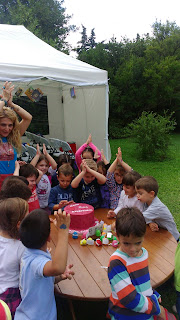Γεωργού παις κοχλίας ώπτει
Ο τίτλος δανεικός από την εναρκτήρια φράση μύθου του Αισώπου. Και για όποιους δεν τολμούν τον πειραματισμό απόδοσης του νοήματος στη Νεοελληνική γλώσσα, από φόβο μήπως μέσα στην παραζάλη που προκλήθηκε από τις δηλώσεις του επίσημου εκπροσώπου αυτού που ονομάζουμε Παιδεία, του ορισμένου ως Υπουργού Παιδείας μας, θεωρηθούν «παρά φύσιν» υπάρξεις, μια και χαρακτήρισε την παραπάνω σε ώρες διδασκαλία των Αρχαίων Ελληνικών σε σύγκριση με αυτές της Νέας ελληνικής, ως «παρά φύσιν» διδασκαλία, προχωρώντας σε διαταγή μείωσης των ωρών διδασκαλίας τους από τον επερχόμενο Σεπτέμβριο, επιβεβαιώνω το νόημα «παιδί γεωργού ψήνει σαλιγκάρια».
Ο γιος του γεωργού λοιπόν έψηνε σαλιγκάρια και ακούγοντάς τα να τραγουδούν, γύρισε γεμάτος απορία προς τα σαλιγκάρια και είπε: Κάκιστα ζώα, καίγεται το σπίτι σας και εσείς τραγουδάτε;
Δεν ξέρω αν θυμάστε αλλά κάθε φορά που ακούμε ή διαβάζουμε ένα Αισώπειο μύθο ή ένα παραμύθι διδακτικό, συνηθίζεται να διερευνάμε το νόημά του, δηλαδή τη διδαχή του. Κάτι μας αφήνει, κάτι θέλει να μας πει. Συνήθως δε επικρατεί η ελπίδα ότι το καλό πάντα νικάει το κακό και επικρατεί. Ο μύθος για το γιο του γεωργού και τα σαλιγκάρια θέλει να πει αυτό που μετά η λαϊκή σοφία εξέφρασε για τον κολιό και τον Αύγουστο. Κάθε πράμα στον καιρό του και ο κολιός τον Αύγουστο. Αξιοκατάκριτο κάθε τι που γίνεται παράκαιρα. Είναι δυνατόν τα σαλιγκάρια να τραγουδούν ενώ πεθαίνουν;
Και όμως είναι. Και αν πας στην Κρήτη και βρεθείς στην κουζίνα την ώρα που τσιγαρίζουν σαλιγκάρια (η επιλογή του νησιού από συνήθεια, μια και η Κρήτη είναι ο κατεξοχήν τόπος μαγειρέματος και γευστικής απόλαυσης των σαλιγκαριών), θα ακούσεις πάλι τους κοχλίες να άδουν ή νεοελληνιστί τα σαλιγκάρια να τραγουδούν!
Γιατί; Λειτουργούν παρά φύσιν; Τραγουδούν ενώ πεθαίνουν; Πώς; Δεν φοβούνται το θάνατο; Δεν τρομάζουν στην ιδέα απώλειας της ζωής τους; Ε λοιπόν όχι. Δεν έχουν συναίσθηση του τι τα περιμένει, για αυτό και τραγουδούν. Αν είχαν συναίσθηση δε θα τραγουδούσαν. Μήπως όμως και ξέρουν και μπορούν να τραγουδήσουν το μοιρολόι τους; Δύσκολος ο διαχωρισμός τραγουδιού και θρήνου, αλλά ίσως όχι και ανέφικτος. Μπορεί αυτό που εμείς θεωρούμε τραγούδι χαράς, για αυτά να είναι ο θρήνος αποχαιρετισμού της ζωής τους. Μπορεί όμως να είναι και το τραγούδι τους η έκφραση της χαράς τους, που ο θάνατός τους έχει τουλάχιστον σκοπό ύπαρξης. Όπως και να χει, η φύση των κοχλιών είναι συνυφασμένη με το τραγούδι την ώρα που πεθαίνουν.
Ο Αίσωπος ήθελε να μοιραστεί με τον κόσμο την πίστη του, ότι κάθε τι έχει το χρόνο του. Η φύση το αποδεικνύει. Το δίδαγμα ισχύει. Αλλά τι ισχύει αν αυτό που η φύση θεωρεί φυσικό, κάποιος έτερος κοχλιός μπορεί –αν επιλέξει– να το θεωρήσει παρα-φυσικό; Η ελευθερία έκφρασης ενδυναμώνει κάθε μυαλό να πει αυτό που ο ίδιος θεωρεί φυσικό. Μήπως όμως αντιπαρατιθέμενος σε αυτό που η φύση επιτάσσει, γίνεται ο ίδιος παρά-ταιρο παρα-φυσικό κομμάτι; Σκέφτομαι βέβαια ότι η φύση της εποχής του Αισώπου έχει αλλάξει. Η φύση σήμερα είναι εμβολιασμένη με τις παρεμβάσεις μας. Σήμερα τρώμε καρπούζι το χειμώνα. Σήμερα οι εποχές έχουν μπερδευτεί και έχουν σπάσει σε κομμάτια ενός παζλ κατασκευασμένου από την περιβαλλοντική μόλυνση, τις εναλλακτικές μορφές ενέργειας, τους τρόπους κατασκευής συνθηκών ζωής σε άλλους πλανήτες, την διεύρυνση των ορίων ανοχής, τον υπερβάλλοντα ζήλο υιοθέτησης της ταυτότητας του ελευθεριάζοντα νου εις βάρος του παραδοσιακού και στενόμυαλου, την ορμή γκρεμίσματος και αποκαθήλωσης κάθε παλιάς συνήθειας ή πεποίθησης. Σήμερα η φύση δεν δύναται να ξέρει τι είναι Φυσικό ή τι είναι παρά φύσιν, τι είναι ενάντιά της δηλαδή. Αλλά οι εκάστοτε κοχλιοί υιοθετούν χαρωπό ή λυπητερό τραγούδι, προσπαθώντας φευ να επιδείξουν αυτοί στη Φύση το παρά-φύσιν… ιλαρό; κωμικοτραγικό; ουδέτερο; Σκέφτομαι πάλι ότι η φύση των κοχλιών του μύθου, είναι συνυφασμένη με το τραγούδι την ώρα που πεθαίνουν. Και έτσι η φύση των λοιπών κοχλιών της κοινωνίας είναι συνυφασμένη με τα παρά-φύσιν αποφθέγματά τους.
Και εμείς οι λοιποί που κάποια στιγμή εγκλωβιστήκαμε μέσα σε αυτόν τον κυκεώνα φυσικού και παραφυσικού, μέσα στον αποπροσανατολισμό και στη δυσκολία οριοθέτησης του παράκαιρου, μέσα στη φοβία του απόλυτου και στην επιτασσόμενη ψευδεπίγραφη ασφάλεια του σχετικού, εμείς πώς μπορούμε να ορίσουμε τη φύση μας; Και να μην την απολέσουμε άπαξ και τη βρούμε;
tetartopress.gr/γεωργου-παις-κοχλίας-ωπτει





























